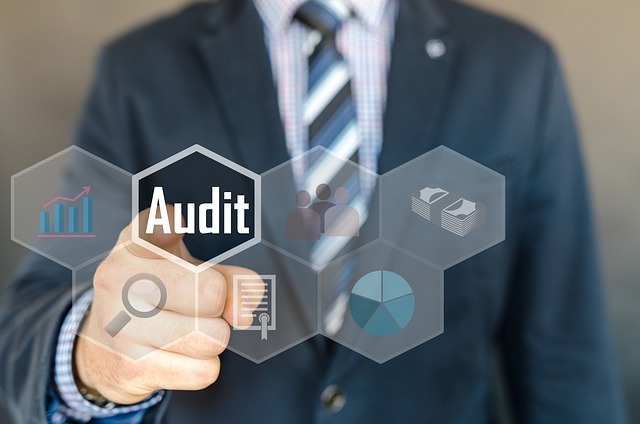Buying an existing website can be a smart strategy for businesses aiming to broaden their online presence quickly. This approach bypasses the time-consuming task of creating a new website and often comes with a ready-made audience. However, it’s crucial to conduct a detailed assessment to guarantee the investment’s soundness.

Comprehensive Website Evaluation
When you’re thinking about buying an existing website, it’s crucial to do your homework thoroughly. You should look into the site’s traffic details, checking not just the total number of visitors but also where they’re coming from and how those numbers have changed over time. You need to see whether the site attracts more visitors, maintains a steady flow, or loses popularity.
It’s also key to investigate the site’s backlink profile. This means examining the number and quality of other sites linking back to it and the types of links used. These backlinks can tell you a lot about the site’s credibility and standing in its niche.
The site’s performance in search engines shouldn’t be ignored either. Find out how well it ranks for the keywords that matter in its field, and see if there’s room to boost its visibility and effectiveness. Tools like Ahrefs and Semrush are invaluable for getting a detailed picture of where the site stands and how it might be improved.
Besides these technical metrics, consider the inherent value of the domain name itself. Factors like the domain’s age, its level of authority in its niche, and how marketable or memorable the name is all contribute to its overall worth. Often, a domain that’s been around for a while and has built up a solid reputation can be a great asset, giving you a head start against competitors.
Uncovering the Owner
When you’re trying to find out who owns a website, a good place to start is by looking at the site itself. Look for a contact form, an email address, or any contact details listed openly. If you can’t find anything there, a WHOIS lookup might help. This search can often reveal who’s behind a website.
But there’s a catch: many website owners use privacy protection services to keep their information hidden, making it harder to figure out who you’re dealing with. When you hit a wall because of these privacy shields, it might be a good idea to get help from a professional broker. They know how to navigate these waters and can help you contact the current owner, making the whole process smoother.
Valuing the Virtual Real Estate
Evaluating a website’s value involves examining various important aspects. Consider the site’s traffic, revenue, and prospects for future growth. It’s crucial to understand how the site makes money. Does it depend mainly on ads, subscriptions, or online sales? It’s essential to check how well each of these revenue streams is performing.
Dive into the site’s analytics to better understand its traffic. You should figure out whether the visitors come from search engines organically or through paid ads. Ideally, the traffic should come from a variety of sources. However, depending too much on one type of traffic can be risky. Also, it’s important to see how diversified the site’s revenue model is. For example, if an online store earns most of its revenue from just one product, that might be a concern.
Financial metrics are certainly important, but you should also pay attention to other valuable aspects of the site, such as the quality of its content and the strength of its backlink profile. These elements can greatly enhance the site’s overall value. After a detailed assessment, you can estimate the potential earnings and return on investment (ROI) to decide if the acquisition aligns with your objectives and investment strategy.
Spotting Shady Website Histories
Buying an existing website might seem like a good opportunity, but being careful is important. You don’t want to end up with a site with a bad online history. Sometimes, a website’s traffic suddenly drops, which can be a sign that search engines punish it for shady SEO tactics. Make sure to check the website’s backlink profile thoroughly. A lot of low-quality or irrelevant links can be a warning sign that the site used black hat SEO methods.
It’s also important to look into any past use of cloaking, doorway pages, or other dishonest strategies to unfairly improve the site’s search engine ranking. These tricks might have temporarily increased traffic and sales, but if search engines find out, they can cause serious damage to the site’s reputation in the long run.
A detailed review of the website’s backlinks is crucial to understanding the quality of these links and spotting any bad signals. Pay special attention to how the anchor text is used in these links. If you see too many links with the exact same keywords, that’s not a good sign. You should use reliable SEO tools to check where these links are coming from, especially if they are from low-quality or spammy sites.
If the website you’re considering buying has a problematic history, it could hurt your reputation and affect your chances of success in the future. Protecting your brand’s reputation is important. Sometimes, it’s better to avoid taking on a website with too many potential problems than risk harm to your own business later on.
Solidifying the Acquisition
After thoroughly reviewing a website’s background and potential, agreeing on a fair purchase price is essential, and detailing payment schedules, asset transfers, and any necessary contingencies is essential. It’s crucial to have professionals draft comprehensive contracts to protect everyone involved, including specifics like ownership rights and confidentiality agreements.
Once the contract is ready, set a realistic timeline for the transfer to avoid operational disruptions. Make sure you have all the necessary access details for a smooth transition. To fully benefit from the acquisition immediately, it’s important to secure ownership of all related digital assets, such as domains, marketing channels, and data repositories.
Ensuring these steps are carefully followed allows you to take over a legitimate online business ready for optimization and growth under your direction.
Comprehensive Site Audit

Once the acquisition is complete, diving into a detailed technical and content review of your new website is crucial. This involves inspecting the technology stack, including the content management system, customer data platforms, analytics, advertising integrations, and other tools.
Immediately secure your investment by updating all ownership details, login information, and access permissions, ensuring no previous owners retain access. Content-wise, assess every aspect of the site—pages, blogs, media—and pinpoint areas for optimization or overhaul to meet your standards. Evaluate the quality of existing content to determine if it adds value or requires updating.
Also, examine how the website makes money through e-commerce, ads, subscriptions, or other means. This analysis will highlight opportunities to enhance or expand revenue streams under your management.
Ongoing Maintenance and Growth
Buying a website is just the start. Regular maintenance and growth efforts are vital to ensure its ongoing success. To protect your investment, implement strong security measures, perform regular backups, and keep software updated.
Keeping an eye on key performance indicators such as traffic, engagement rates, conversion metrics, and revenue streams is crucial. This data helps you make informed decisions regarding content, user experience, marketing, and other areas. It’s important to keep evolving and not become complacent.
The digital world changes constantly with new algorithms, technologies, and user behaviors. Regularly reviewing and improving your website’s structure, loading speed, mobile compatibility, and accessibility is essential. Continuous enhancement is key.
It is important to be agile and ready to adapt to industry changes. Staying committed to optimizing your website will ensure that it keeps up and stays ahead of its competitors.
Conclusion
Buying an existing website can be a great investment, but it’s important to be smart about it. You need to really do the research to make sure you’re not buying something that’s been spammed all over the internet or has a shady past. Understanding the website’s history, traffic, and earnings will help you make a decision that’s good for your business in the long run.
